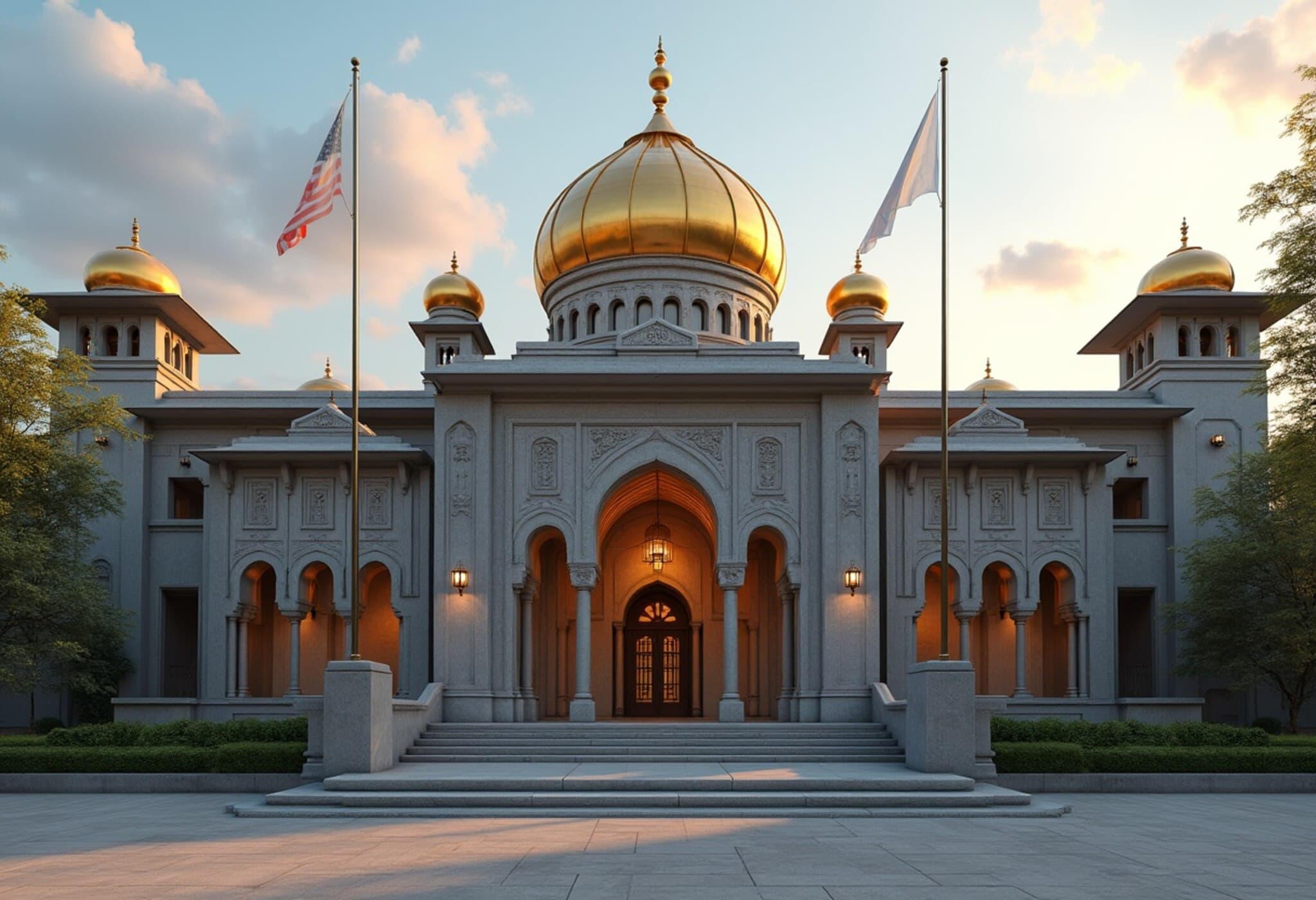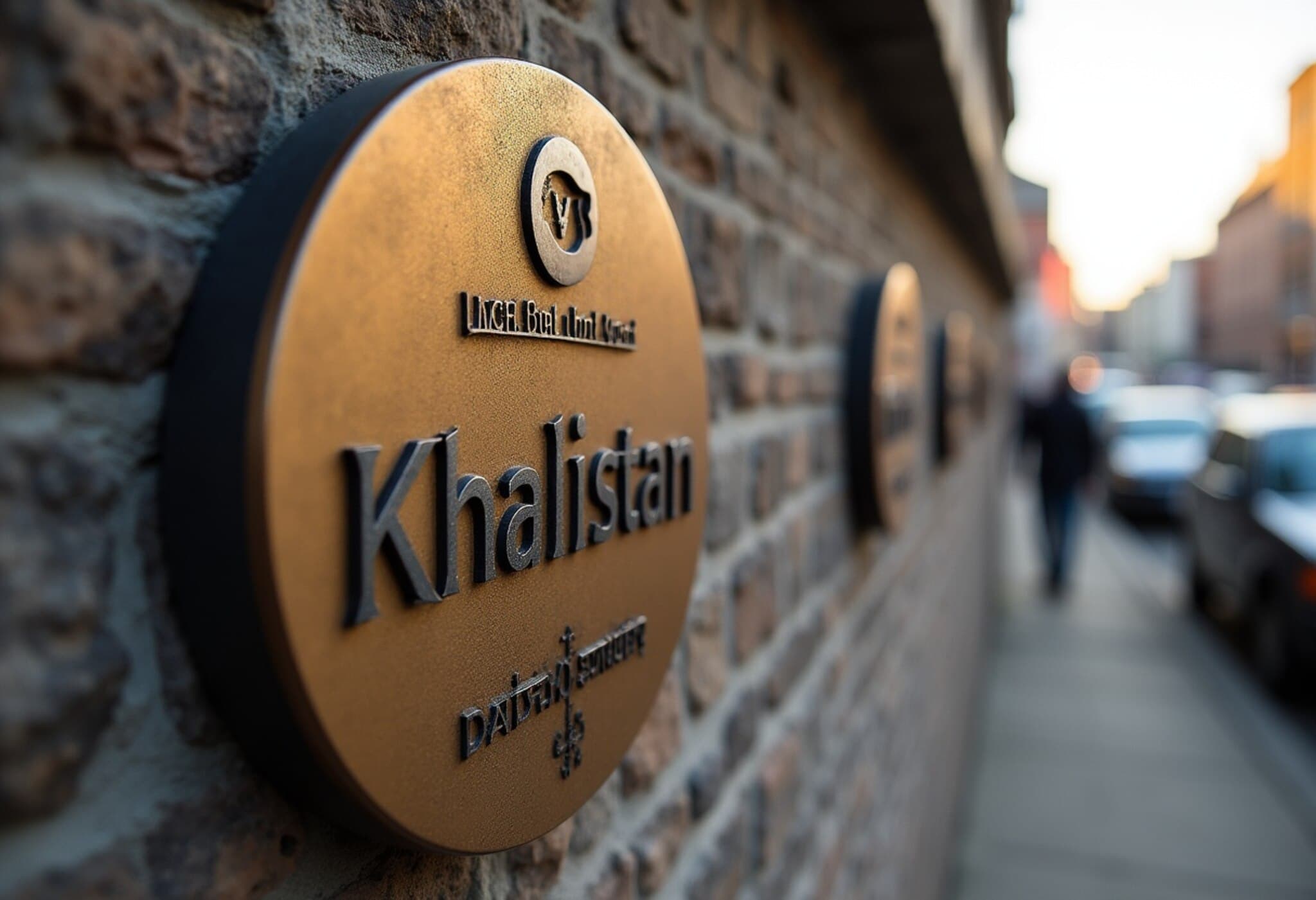The Controversial ‘Embassy of Khalistan’ Emerges in Surrey, Canada
In a development stirring debate across diplomatic and local communities, the Khalistani separatist group Sikhs for Justice (SFJ), in collaboration with Surrey's Guru Nanak Sikh Gurdwara, has unveiled a so-called “Embassy of Khalistan.” This entity, marked boldly by signage declaring the “Republic of Khalistan,” is housed within a building on the gurdwara’s premises—a center deeply embedded in the Sikh community fabric in British Columbia.
Public Funds, Provincial Oversight, and Rising Questions
Local residents and investigative reports highlight an uncomfortable reality: the building accommodating this controversial 'embassy' was constructed using funds provided by the Government of British Columbia. Notably, the provincial government recently allocated $150,000 to install an elevator within this facility, which now doubles as the hub for the separatist group.
These revelations have triggered sharp criticisms and questions about the deployment and oversight of public funds, especially considering the sensitive nature of Khalistani separatism, a topic long shadowed by diplomatic tension and security concerns.
Canada’s Spy Agency Flags Khalistani Extremism
Heightening the controversy, Canada’s top security body—the Canadian Security Intelligence Service (CSIS)—issued a rare public alert in June 2025. The agency acknowledged that Khalistani extremists actively use Canadian soil as a nexus for promoting, fundraising, and plotting acts of violence primarily targeting Indian interests within India.
This official recognition shines a spotlight on an escalating threat that has forced Canadian policymakers and communities to grapple with the difficult balance between protecting civil liberties and ensuring national and international security.
Historical and Diplomatic Context
The Khalistani separatist movement traces roots to the turbulent 1980s and seeks to carve out an independent nation predominantly in India’s Punjab region, often entangled with violent tactics. India has persistently raised concerns about Canada’s perceived leniency and the presence of Canada-based Khalistani extremists (CBKEs), pressuring Ottawa to clamp down on these groups.
This friction plays into broader geopolitical dynamics between Canada and India, complicating their diplomatic relationship. For Canada, home to one of the world’s largest Sikh diaspora communities, navigating this issue requires sensitivity to multiculturalism, minority rights, and international diplomacy.
The Fine Line Between Community Spaces and Political Extremism
The establishment of an “embassy” within a religious community center raises complex questions. Religious institutions traditionally serve as safe spaces fostering community cohesion and spiritual growth. When such spaces become linked to separatist political symbolism and calls for independence—especially with allegations of violent extremism—the implications ripple beyond local neighborhoods into national security and foreign affairs.
Experts suggest that this scenario illuminates a critical need for nuanced policy approaches:
- Enhanced government oversight to ensure public funds do not inadvertently support separatist agendas.
- Community engagement programs that empower local voices against extremist ideologies.
- Clearer protocols for religious and cultural institutions interacting with political organizations.
Looking Ahead: Challenges and Responsibilities
Canada faces a delicate challenge balancing its proud democratic values—including freedom of expression and assembly—with countering extremism that threatens both domestic safety and international friendships.
The emergence of the “Embassy of Khalistan” in Surrey’s gurdwara poignantly underscores this tension. It signals a need for ongoing dialogue between Canadian authorities, Sikh community leaders, and international partners like India to foster understanding while curbing violent separatist ambitions.
Expert Insight
Dr. Amanpreet Singh, a Canadian-based expert in diaspora politics, comments, “This development is a flashpoint revealing how diaspora political movements can complicate bilateral ties and domestic policies. Canada must reinforce transparent funding mechanisms and invest in community-based counter-radicalization efforts that honor cultural identities while combating violence.”
Editor’s Note
The controversy surrounding the “Embassy of Khalistan” in Surrey invites us to reflect on broader questions about multicultural democracies facing transnational separatist influences. How can governments safeguard public resources from political misuse without alienating vibrant ethnic communities? And how might diplomatic relationships evolve when domestic actions reverberate globally? This story continues to unfold, reminding us of the complex interplay between identity, security, and statecraft.










